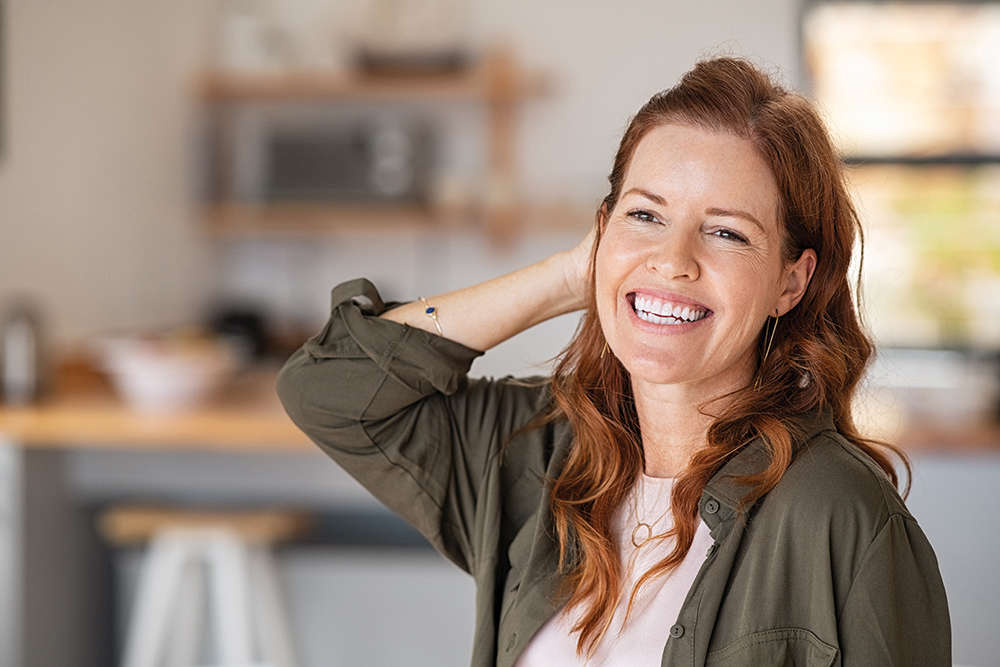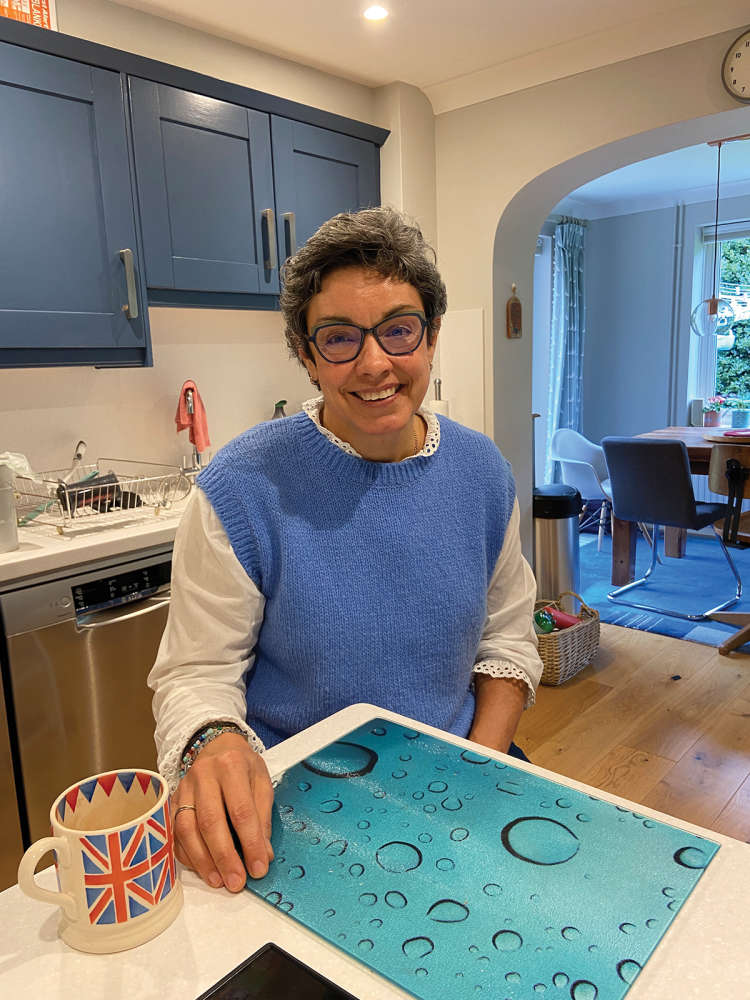
When it comes to menopausal issues, Nicola Vinall has the knowledge and understanding to help women tackle the many concerns they may have during this time of life, so we sent Helen Stockton to find out more
Nicola Vinall is the ideal person to talk to about the menopause. As a pharmacist, a nutritionist and a health coach she is a well-informed professional who evades the simplistic medical or alternative therapies divide. Instead, she offers an holistic approach, getting to know the individual and working with them to find solutions.
“Many women just don’t know what to expect when they reach the menopause. They think they’ll get a few hot flushes and that’ll be it,” explained Nicky. “They just don’t understand what is happening to them.”
Symptoms of the perimenopause, the months or years leading up to the menopause, when hormone levels begin to fluctuate but periods haven’t yet stopped, and the menopause itself, officially one year after your last period, are variable. They can include irritability, anxiety, insomnia, hot flushes, night sweats, brain fog, breast pain and palpitations.
Such a range of symptoms requires a broad approach that includes considering diet, exercise, stress management and sleep. Things that have worked in the past, might no longer be helpful, and certain behaviours such as sugary snacking, too much screen time and reaching for the wine bottle, can actually make things worse. But Nicky isn’t about to impose a strict eating regime or punitive bans, she prefers to work with women, supportively, finding out what has worked for them previously, enabling them to make helpful changes.
And the menopause isn’t just about ‘women of a certain age’. Although the average age for the menopause is fifty-one, some women experience it in their twenties. This can be due to familial tendencies, surgery, medical treatments or premature ovarian insufficiency, when the ovaries don’t make enough oestrogen. Menopause due to medical interventions can be particularly hard, as the onset is sudden.
“It can seem like falling off a cliff,” explained Nicky.
12% of women go through spontaneous early menopause between the ages of forty and forty-five, with 4% of women even earlier than that.
“If women in their fifties sometimes find it hard to talk about the menopause, it is so much more difficult for women in their twenties,” suggested Nicky. Working with younger women is of particular interest to her because of the lack of support out there. She can guide them and let them know they are not on their own. In addition to her normal programme, an initial consultation and a range of follow-up options, she offers a free menopause cafe for women to network and talk. She is also happy to refer women to other professionals and to give them the information needed for informed, productive conversations with their GP.
Not only does Nicky have a wealth of professional knowledge about the menopause, but she is someone you can talk to. She is not going to offer faddy quick fixes but, instead, a long-term plan that will see women through this time and out the other side. So, if you need some help with your menopausal issues and want to know more, why not get in touch.
www.nicolavinall.com

Nicola Vinall


 Five Of The Most Wondrous Ancient Ruins In The World
Five Of The Most Wondrous Ancient Ruins In The World
 Five Of The Most Inhospitable Places on the Planet
Five Of The Most Inhospitable Places on the Planet
 Five Animals You Wouldn’t Believe Are Kept as Pets
Five Animals You Wouldn’t Believe Are Kept as Pets
 Five Most Pet-Friendly Destinations in the UK
Five Most Pet-Friendly Destinations in the UK
 Five UK Valentine's Destinations Perfect For A Night Away
Five UK Valentine's Destinations Perfect For A Night Away



 More Than 70 Driving Offences Dealt With Over Two Days On Isle Of Wight Roads
More Than 70 Driving Offences Dealt With Over Two Days On Isle Of Wight Roads
 Wightlink Technical Problems Lead To Cancellation Of All Fishbourne-Portsmouth Crossings
Wightlink Technical Problems Lead To Cancellation Of All Fishbourne-Portsmouth Crossings
 Contentious Plans For New 7,245 Square Metre Commercial Park Appealed
Contentious Plans For New 7,245 Square Metre Commercial Park Appealed
 Wightlink Crossings Cancelled Due To Engine Issues
Wightlink Crossings Cancelled Due To Engine Issues
Comments
Add a comment